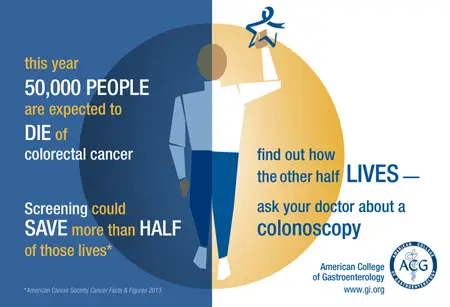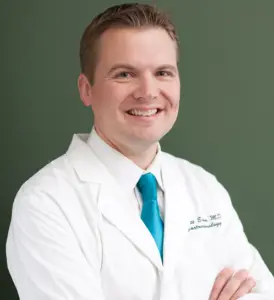What are Quality Indicators for Colonoscopy?
What are the best Quality Indicators for Colonoscopy in Plano, TX?
Patients often wonder how they know if their physician is appropriately trained and practices quality medicine. This information is often not available, is difficult to interpret, or is unreliable. Several studies have been done to help patient’s determine which measures of quality provide the best assessment of a physician’s skills and thoroughness during a colonoscopy.
According to the American College of Gastroenterology, to be a good quality indicator, the indicator must have an evidence-based impact on outcome and must be both reliably and feasibly measured. The two best indicators that meet these criterions are: adenoma detection rate and the cecal withdrawal time.
Indicators to measure Quality in Colonoscopy
 The adenoma detection rate is the percentage of time that adenomatous or “precancerous” polyps are detected in asymptomatic individuals. Finding and removing this type of polyp is the main aim of colonoscopy as these are the lesions that can eventually turn into colon cancers. The current goal for each provider as outlined by the American Society of Gastrointestinal Endoscopy is an adenoma detection rate > 25%. Recent data has found that the risk of a patient developing colorectal cancer within 4 years decreases significantly when the adenoma detection rate is >25% and is optimized when the adenoma detection rate is > 32%.
The adenoma detection rate is the percentage of time that adenomatous or “precancerous” polyps are detected in asymptomatic individuals. Finding and removing this type of polyp is the main aim of colonoscopy as these are the lesions that can eventually turn into colon cancers. The current goal for each provider as outlined by the American Society of Gastrointestinal Endoscopy is an adenoma detection rate > 25%. Recent data has found that the risk of a patient developing colorectal cancer within 4 years decreases significantly when the adenoma detection rate is >25% and is optimized when the adenoma detection rate is > 32%.
The cecal withdrawal time is the time it takes for the gastroenterologist to withdraw the scope after he or she has already advanced the scope to the cecum (beginning of the colon where the small intestine attaches and empties its contents). During the withdrawal of the scope, the gastroenterologist closely evaluates the colonic mucosa looking for polyps, mass lesions, and other colonic abnormalities. Withdrawal times greater than 6 minutes have been shown to significantly increase the adenoma detection rate and therefore decrease the risk of future colon cancers.
What are the Quality Indicator results for Matthew Eidem, MD in Plano, TX?
In order to have a quality rate of adenoma detection, it is important that your gastroenterologist takes the time to thoroughly evaluate the colon during your procedure. Providing quality patient care is my top priority. I reviewed my adenoma detection rate and cecal withdrawal time data from October 2016 to December 2017. My adenoma detection rate was 41.9% and my cecal withdrawal time was 9.6 minutes. Both of these measures far exceed the recommended standards for these quality indicators as I previously indicated I this post. I have always sought to provide the most outstanding care to my patients and I am very proud of my quality indicator data. I continually review my quality indicator data on a regular basis to ensure that I am providing my patients with excellent medical care in the Plano, TX area.
If you have any questions regarding these indicators or other aspects of the colonoscopy, please post a comment and I would be happy to respond. Also, I encourage you to click on these links for more information on the colonoscopy procedure and determining what the cost of colonoscopy is in Plano, TX as you plan for your medical expenses.
Image: American College of Gastroenterology


